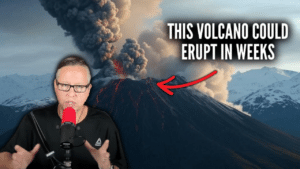North Korea test-fired possibly its biggest intercontinental ballistic missile toward the sea Thursday, according to its neighbors, raising the ante in a pressure campaign aimed at forcing the United States and other rivals to accept it as a nuclear power and remove crippling sanctions.
The launch, which extended North Korea’s barrage of weapons tests this year, came after the U.S. and South Korean militaries said the country was preparing a flight of a new large ICBM first unveiled in October 2020.
South Korea’s military responded with live-fire drills of its own missiles launched from land vehicles, aircraft, and a ship, underscoring a revival of tensions as nuclear negotiations remain frozen. It said it confirmed readiness to execute precision strikes against North Korea’s missile launch points as well as command and support facilities.
Sky News reported that North Korea’s rocket launch has been branded a “clear violation” of UN Security Council resolutions by South Korea’s deputy national security adviser, as Seoul responded to the provocation by firing multiple missiles, its military said. Japan’s coast guard earlier said North Korea launched a projectile which landed inside Japan’s exclusive economic zone (EEZ), 170 km (106 miles) west of Aomori prefecture in northern Japan, at 3.44 pm (6.44 am GMT).
Now, with the world focused on Russia’s invasion of Ukraine, Pyongyang appears to have tested a weapon that could threaten the U.S. mainland, prompting a strong condemnation from the White House, which called it a “brazen violation” of multiple U.N. Security Council resolutions.
“We urge all countries to hold the DPRK accountable for such violations and call on the DPRK to come to the table for serious negotiations,” said press secretary Jen Psaki, referring to the country by its official acronym.
“The door has not closed on diplomacy, but Pyongyang must immediately cease its destabilizing actions.” Japanese Prime Minister Fumio Kishida and South Korean President Moon Jae-in both confirmed the ICBM test and “strongly condemned” it shortly after the suspected missile landed within Japan’s exclusive economic zone near the coast of the northern island of Hokkaido.








